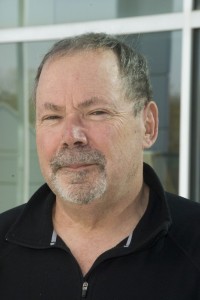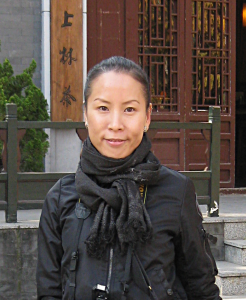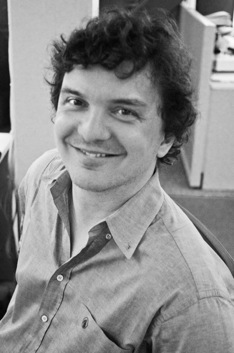Keynotes
The Era of Open |
Philip E. Bourne, University of California at San Diego |
| Abstract: We are definitely in the open era. What does that mean and what does the future hold? I will provide a practitioners perspective on these questions as someone involved in running widely used biological databases, a producer of open source software and as founding editor in chief of an open access journal from the Public Library of Science (PLOS). In a nutshell it means profound change in the way educate, collaborate, disseminate and comprehend. I look forward to an open dialog as to more details of what that really means drawing on some examples from my own experiences. |
 Speaker: Philip E. Bourne PhD is Associate Vice Chancellor for Innovation and Industrial Alliances, a Professor in the Department of Pharmacology and Skaggs School of Pharmacy and Pharmaceutical Sciences at the University of California San Diego, Associate Director of the RCSB Protein Data Bank and an Adjunct Professor at the Sanford Burnham Institute. Bourne's professional interests focus on relevant biological and educational outcomes derived from computation and scholarly communication. This implies algorithms, text mining, machine learning, metalanguages, biological databases, and visualization applied to problems in systems pharmacology, evolution, cell signaling, apoptosis, immunology and scientific dissemination. He has published over 300 papers and 5 books, one of which sold over 150,000 copies. Bourne is committed to maximizing the societal benefit derived from university research. He has co-founded 4 companies: ViSoft Inc., Protein Vision Inc., a company distributing independent films for free and most recently SciVee. Bourne is committed to furthering the free dissemination of science through new models of publishing and better integration and subsequent dissemination of data and results which as far as possible should be freely available to all. He is the co-founder and founding Editor-in-Chief of the open access journal PLOS Computational Biology. Bourne is a Past President of the International Society for Computational Biology, an elected fellow of the American Association for the Advancement of Science (AAAS), the International Society for Computational Biology (ISCB) and the American Medical Informatics Association (AMIA). Awards include: the Jim Gray eScience Award (2010), the Benjamin Franklin Award (2009), the Flinders University Convocation Medal for Outstanding Achievement (2004), the Sun Microsystems Convergence Award (2002) and teh CONNECT Award for new inventions (1996 & 97). Personal interests are hiking, flying and motor bikes. |
Let's raise kids up! |
Pockey Lam, Digital Freedom Foundation |
| Abstract: From refurbishing old computers donated by companies and installing them with GNU/Linux and Free Software to developing and deploying open education resources and packaging free educational software together in migrant workers schools in Beijing. Pockey intends to share her experience doing those things and hope to get more people to review, improve and deliver this content to children who need it. |
 Speaker: Pockey is passionate about Open Education and Free Software (FLOSS). She is currently the Director and Secretary of Digital Freedom Foundation. She is also co-founder and VP of Greenboard, a NGO about open education solution in migrant workers schools in China. Previously she was the President of the Beijing Linux User Group, co-founder and lead organizer of GNOME.Asia. In order to spend all this time volunteering and making a better world, Pockey currently works as a consultant in dao² Inc. Before that she was VP Marketing of the Gdium Project, an effort striving to allow everybody to access knowledge for free as well as the CEO of Compario China and the Vice General Manager of Willsee China, a factory of corporate gifts in South China. In her early career stage, she focused in the marketing field working in advertising agencies in Hong Kong and Beijing. Pockey graduated from City University of Hong Kong, with a major in Sales and Marketing. Feel free to visit her blog at http://pockey.dao2.com to know more about her. |
Descending Mount Everest: Steps towards applied Wikipedia research |
Dario Taraborelli, Wikimedia Foundation |
| Abstract: Over the last years, Wikipedia has seen an explosion of academic interest, as indicated by a steadily increasing volume of scholarly publications. Due to its history, its size and the immediate availability of its data under open licenses, Wikipedia has served over time as a testbed for sociological and psychological theory; as the primary source of data for models of commons-based peer production and computer-supported collaboration; as a body of norms for research on the governance of online communities; or as a large multilingual corpus to mine, or against which to train text analysis algorithms. This explosion of academic interest reveals a gap between Wikipedia as a topic of scholarly research and Wikipedia as a living community in need of actionable solutions, facing real challenges and the first serious growth and sustainability problem in its entire lifecycle. The Wikimedia Foundation and the Wikimedia communities have yet to find a viable model to leverage academic expertise to solve these challenges, in the same way that Wikimedia projects have effectively engaged with a large community of contributors and software developers to produce its contents and support its open source infrastructure. In this talk I will review recent research trends spanning scholarly work and internal research conducted at the Wikimedia Foundation, and how these relate to some of the most urgent needs of the Wikimedia movement and the Wikimedia Foundation’s work priorities. I’ll discuss models that can support actionable research, as well as open opportunities for researchers and contributors to collaborate on developing joint solutions and identifying new growth opportunities for WIkipedia and its communities. |
 Speaker: Dario Taraborelli is a social scientist working at the Wikimedia Foundation, where he leads research into product development and editor engagement. He is interested in factors that sustain online collaboration and peer production. As an open access advocate and a co-author of the altmetrics manifesto, he is also interested in how the Web is reshaping scientific collaboration and scholarly communication and in new ways to measure the impact and reuse of scholarly knowledge. He holds a PhD in cognitive science from the Ecole des Hautes Etudes en Sciences Sociales (France). |
